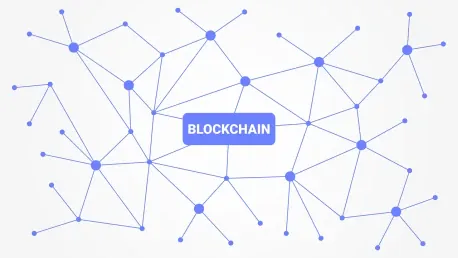Blockchain is often associated with cryptocurrencies like Bitcoin, but its potential applications extend far beyond digital currency. One of the most promising areas where blockchain can make a significant impact is in the healthcare industry, specifically in transforming the way we manage medical records and ensure data privacy. Blockchain, a decentralized and secure digital ledger technology, offers a unique solution to many of the inefficiencies and vulnerabilities present in current healthcare data management systems.
The Current State of Medical Records
Medical records today are often scattered across various systems and institutions, leading to inefficiencies such as the duplication of tests, miscommunications between healthcare providers, and detrimental delays in patient care. Traditional record-keeping methods typically rely on centralized databases, which are not only prone to breaches but also susceptible to unauthorized access. This centralization poses a significant risk to data privacy and the overall security of patient information. Blockchain technology promises a decentralized and secure alternative.
By employing a distributed ledger, blockchain ensures that medical records are not confined to a single, vulnerable location but are spread across multiple nodes. This decentralized nature greatly reduces the risk of data breaches and unauthorized access. Moreover, each transaction or data entry is encrypted and timestamped, offering a transparent and traceable history that can further uphold data integrity and security. The current fragmented state of medical records can thus transition to a more unified and secure structure with blockchain’s incorporation.
Enhanced Management of Medical Records
A major benefit of blockchain in healthcare is its ability to streamline the management of medical records. In a blockchain system, each patient’s complete medical history is stored in a single, immutable ledger that healthcare providers can access with proper authorization. This centralization of medical records in blockchain improves the accuracy and completeness of patient information, ensuring that healthcare providers have a comprehensive view of the patient’s health status at all times.
With blockchain, patients also gain more control over their own medical information. They can grant access to specific healthcare providers or institutions as needed, ensuring that their data is always used appropriately. This patient-centric model reduces the risk of errors and miscommunication, ultimately leading to better healthcare outcomes. Additionally, blockchain’s tamper-proof nature makes it ideal for ensuring the integrity of medical records. Once data is entered into the blockchain, it cannot be altered or deleted, providing a reliable and trustworthy source of patient information for healthcare providers.
Boosting Patient Data Privacy and Security
Data privacy in healthcare is more critical than ever, given the increasing rate of cyberattacks targeting sensitive medical information. Traditional data storage methods often fall short in protecting patient data adequately, rendering it vulnerable to breaches and unauthorized access. Blockchain technology, however, offers a more robust and secure solution.
In a blockchain system, data is encrypted and distributed across a network of nodes, making it exceptionally difficult for unauthorized users to access. Each transaction is recorded with a timestamp and linked to previous transactions, creating a transparent and traceable history of data access and modifications. This built-in security feature ensures that patient health information remains private and secure. Patients can also control who has access to their medical records by using private keys, ensuring that only authorized individuals can view or modify their information. This control enhances both privacy and security. Furthermore, the use of smart contracts can automate data access permissions, ensuring that patient data is always handled according to predefined rules and regulations.
Revolutionizing Data Sharing and Interoperability
Interoperability, or the ability of diverse systems and organizations to work together seamlessly, has always been a significant challenge in healthcare. Traditional systems often struggle to share data across different platforms, leading to fragmented patient records and inefficiencies in care. This is where blockchain can offer profound improvements by providing a standardized, secure platform for data sharing.
Blockchain allows healthcare providers to exchange patient information seamlessly while maintaining stringent data privacy standards. This is especially useful in emergency situations where rapid access to complete and accurate medical histories can be crucial. Blockchain ensures that shared data is both up-to-date and tamper-proof, reducing the risk of errors that could adversely affect patient care. The transparency inherent in blockchain transactions builds trust among all parties involved, including patients, healthcare providers, and regulatory bodies.
Smart Contracts for Automated Data Management
Smart contracts are self-executing contracts with the terms of the agreement directly written into code. In the realm of healthcare, smart contracts can automate a multitude of processes, significantly reducing administrative burdens and ensuring compliance with regulations.
For instance, smart contracts can automatically grant healthcare providers access to a patient’s medical records when specific conditions are met, such as the patient’s consent or an emergency situation. This automation not only speeds up data access but also ensures that all actions are compliant with privacy laws and regulations. Additionally, smart contracts can be used to manage data-sharing agreements between different institutions. By automating these agreements, blockchain significantly reduces the need for manual intervention, ensuring that data is shared swiftly and securely.
Conclusion
Blockchain is commonly linked with cryptocurrencies such as Bitcoin, but its potential applications go well beyond digital money. One of the most promising fields where blockchain can make a major difference is in the healthcare sector, particularly in revolutionizing the management of medical records and safeguarding data privacy. Blockchain, a decentralized and secure digital ledger technology, provides an innovative solution to many of the flaws and security issues that plague current healthcare data management systems. This technology allows for the creation of tamper-proof records, ensuring that patient information is accurate and unaltered. Furthermore, it can streamline administrative processes, reducing both cost and time for healthcare providers. Data breaches, a growing concern in the industry, can be mitigated as blockchain’s encryption methods offer enhanced security measures. Not only does blockchain improve the reliability of medical records, but it also empowers patients by giving them more control over their personal health information. This technology promises to redefine how healthcare systems operate, offering greater efficiency, security, and transparency.









